✨You Can Touch the Times Square New Year's Eve Ball!
Find out how you can take home a piece of the old New Year's Eve ball!


Last year, Untapped New York explored the public bathroom situation in New York City. In Paris, the options are much more plentiful thanks to the widespread installation of free-standing toilet kiosks called sanisettes by JCDecaux.
In Paris, pissoirs (public toilets) date to 1841. Originally called vespasiennes, they were named in homage to the Roman Emperor Vespasianus who installed the first public toilet system–large earthenware urns throughout Rome. In Paris, the number of public toilets increased during the reign of Napoleon III and peaked in 1914, with 4000 in Paris. Although they were once an important architectural element of the street, there is only one left in Paris, on Boulevard Arago just near the intersection of Rue de la Santé. Pissoirs tended to be constructed of aluminum and (clearly) benefited the male bathroom-goer.
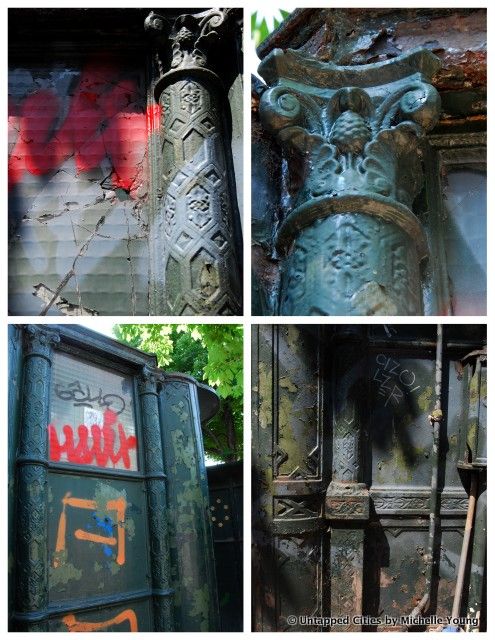
This pissoir still has running water to wash everything down the drain. Graffiti, stickering and vandalization has rather recently taken a toll on this pissoir, in comparison to a photograph from 2005. Despite the damage, you can still see the Corinthian columns and the diamond patterning throughout the metalwork:
This last pissoir is now a proud landmark of the neighborhood. Within three minutes, two people eagerly informed us that it was the last one in Paris. A middle-aged lady mentioned that it was used mostly by taxi drivers and that her lonely aunt lived just nearby and liked to stop by just to see “what was going on” by the pissoir.
By the 1950s, only about 300 pissoirs remained and in the 1960s the city began installing public pay toilets with attendants to improve urban hygiene. In 1980, the firm JCDecaux installed its first self-cleaning sanisette units in Paris. JCDecaux coined the term, “street furniture” that is actively used in urban planning today. The free-standing sanisettes were originally pay-per-use, but were gradually converted to free operation between 2002 and 2006. In the older models, you can see the coin drop and alteration of the signage to adapt to this change.
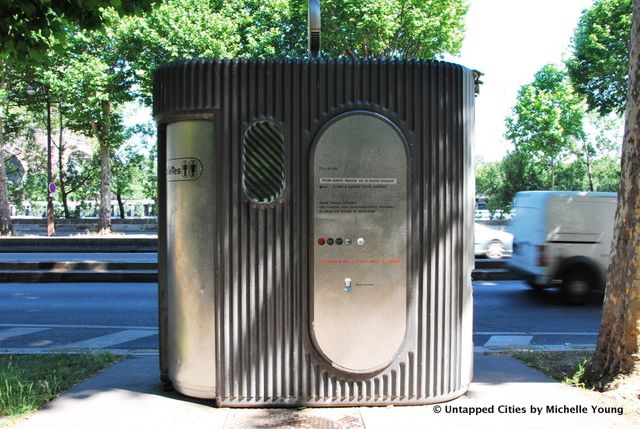
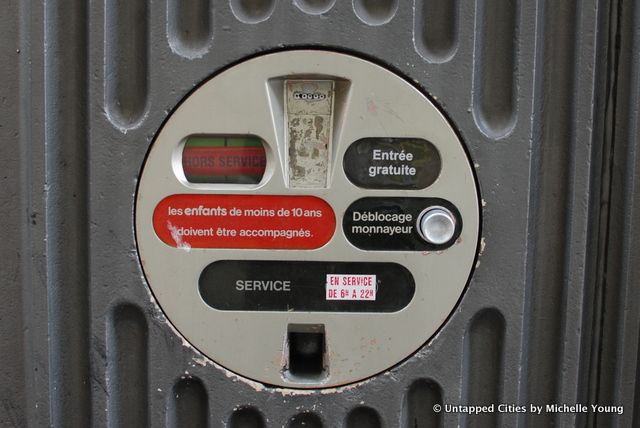
An older sanisette, converted from pay-per-use to free. These are usually broken and outnumbered by the more common style belo
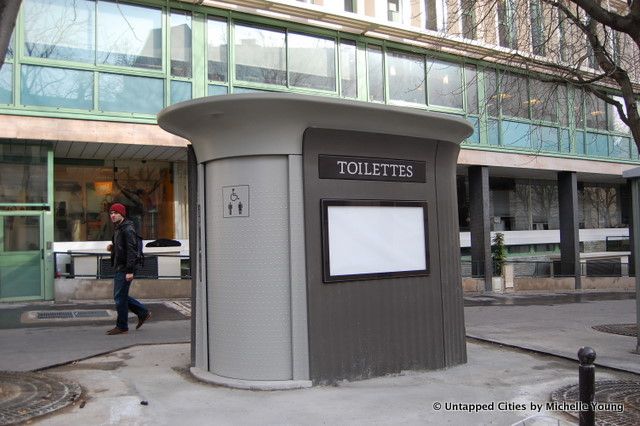
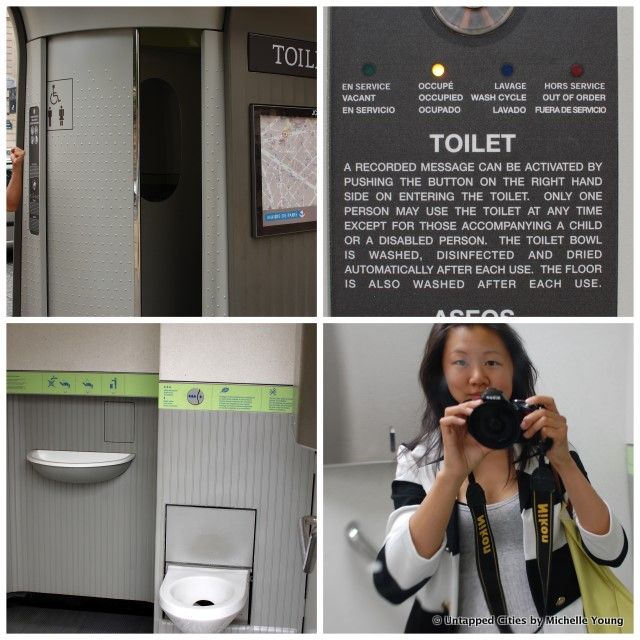 Some shots of the bathroom in action, the interior, and the fun mirror which elongates you!
Some shots of the bathroom in action, the interior, and the fun mirror which elongates you!
For a great article detailing some prime non-free standing public toilets in Paris, check out this article at a great blog called, I Prefer Paris!
Follow Untapped Cities on Twitter and Facebook! Get in touch with the author @untappedmich
Subscribe to our newsletter